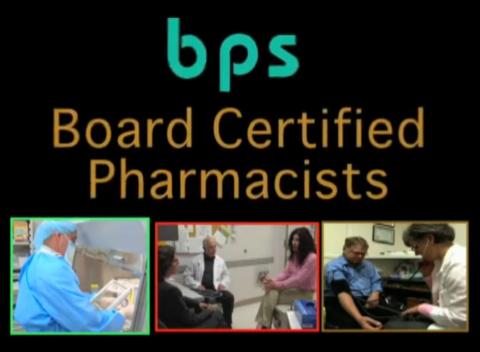Why Hospital Pharmacy Struggles
/It is no surprise to hospital pharmacists that there is an internal battle going on. I cannot outline the struggle without first describing how hospitals get paid. Hospitals are a business and businesses cannot continue to function without money to pay its employees and generate profit.
Hospitals are paid by different methods depending on who is paying the bill.
Medicare: the federal program for the elderly usually pays the hospital a flat fee per case depending on the case. There are around 750 different diagnostic related cases (D.R.G.'s) that can be billed and each command a flat rate regardless of what happens in the hospital. These flat rates are changed due to lobbying and advice from commissions and other methods. Many times hospitals claim the payments received are below cost which causes the hospital to lose money.
Medicaid: the federal-state program for the poor, blind and disabled hospitals receive the same D.R.G's or a set amount of dollars per day (per-diem) or fee-for-service (F.F.S.) payments. These are set by state governments. Again, many times hospitals claim the payments received from Medicaid are below cost which causes profit loss.
Private insurers: purchased by consumers and pay hospitals on the basis of per-diems or fee-for-service. These usually exceed hospitals' costs and help override the losses from Medicare and Medicaid. Private insurers also help with net profits for the hospital and are negotiated yearly.
Breaking down the particular fees agreed upon, it's fairly evident that the pharmacist's role in billable services is on the distribution aspect: the medication provided and the rest is dollars saved but not billed. For example, if I dispense 2 bags of IV vancomycin, the hospital can bill $XX for the medication. If I recommend changing vancomycin to an oral antibiotic, the savings are due to medication and delivery costing less. I am not billing the other aspects of the IV to PO change. The patient has less chance of infection with an antibiotic given by mouth than IV and is easier to administer. Maybe even the cultures drawn show equal sensitivity and the choice of by mouth antibiotic is an ideal choice over choosing IV. There are cost savings for the drug (still distribution in nature) and costs in drug delivery, but the consult itself to change a medication has no billable service to the pharmacy department but indirect savings to the hospital as a whole. There are also cost savings with preventable adverse drug errors in regards to length of hospital stay billed, but nothing billed on catching anything amiss on a patient's profile, rounding with physicians, billing a "consult" or anything tied to a clinical pharmacist directly as a provider.
In other words, pharmacists command high salaries but do not have a way to bill for the same amount in return. Pharmacists and pharmacies cost the hospital a lot of money.
Hospitals are starting to learn that using pharmacists to cut medication errors cuts down on readmission (financial penalties with reimbursement). They are learning that there are costs tied to a patient experiencing an adverse drug reaction and other indirect cost savings, but the hospitals still need a return on their investment. Perhaps that is where provider status for pharmacists will fill in the gap?
Not only do we struggle with what we bill and what we cannot bill, we also struggle with being segmented within our own pharmacy departments. Distributive pharmacists (order entry pharmacists) are looked upon as aging dinosaurs out-of-touch with the clinical aspect of rounding with physicians and making real-time recommendations at bedside and new graduates state, "I don't want an order entry job. I want to be a clinical pharmacist." There is a division that seems to be encouraged with residency programs, fellowships, and board certification leading to "clinical" jobs and none required for order entry jobs. Maybe you are one of the lucky ones in a more progressive hospital that tries hard to incorporate both models into staffing with pharmacists decentralized on the hospital floors interacting "clinically" with nursing, physicians and patients. Maybe you are still stuck to a computer monitor in the basement of a hospital barely interacting with anyone directly. The models are all over the place because of the lack of being able to bill for what pharmacists provide besides a bag of medication.
Another struggle is that clinical pharmacists do not want to be bothered by pharmacy operational problems or regulatory issues. Operational problems affect patient care as well and translates into costs for the department and hospital.
The last struggle that I have observed over the last fifteen years is the lack of excellence in leadership. I do not have many peers who strive for leadership roles in pharmacy but are fine to sit back and just work as a pharmacist rather than a manager. There are not a lot of strong leaders teaching and mentoring others on how to lead within the pharmacy and because of that pharmacists do not have a lot of power or clout to make change happen inside the pharmacy. This also translates into the lack of leadership and power where change happens on a government level.
What is the answer? I am hopeful that provider status will open the door to pharmacists becoming a return on investment for hospitals rather than a huge expense, but I also believe that there should be more meshing with understanding the business side of hospital pharmacy with clinical pharmacy because the two together would benefit what should be the ultimate goal of a hospital: patient care and minimizing costs.





